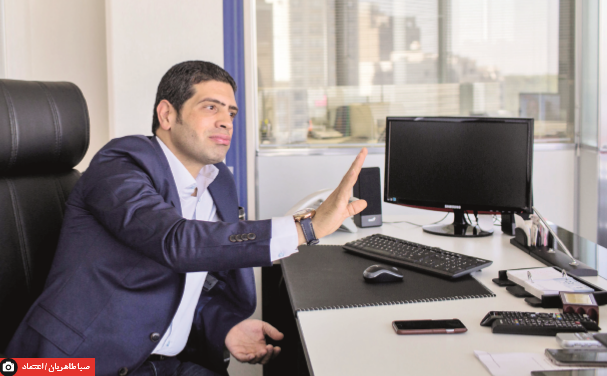Abd al-Kader Faeez, the chief of the Qatari media wing’s bureau in Tehran, stressed that differences with Iran can be resolved simply through negotiations.
He referred to the latest attempts by Saudi Arabia to normalize ties with Israel and added, “Now the Saudis are trying to create a new enemy instead of Israel and Iran is their choice.”
In a Farsi interview with the daily newspaper E’temad, Fayez talked about different reginal issues from the diplomatic crisis between Saudi Arabia and Qatar to Iran’s growing role in the region. Here are highlights of his interview:
* Qatar will not accept any foreign interference in its relations with Iran
* Saudi Arabia is not strong enough to play the leading role in the Arab World
* The decisions by Saudi Arabia have cast doubt on the concept behind the Persian Gulf Cooperation Council
* Saudi Arabia and its allies want to turn Qatar into a second Bahrain
* Qatar’s foreign policy is not racial. For example, we don’t say that Qatar will not make coalition with Iran because we are Arab and they are not or we are Sunnites and they are Shiites.
* By adopting certain measures, Saudi Arabia and the UAE paved the way for failure of Arab Spring in the region so that today we are witnessing the return of former generals and dictators to power.
* Saudi Arabia and its allies’ next step is to raise economic and political siege on Qatar to prolong the current diplomatic crisis.
* The Persian Gulf Cooperation Council [P](GCC) is not capable enough to confront Iran. It does not have executive power.
* Saudi Arabia and its regional allies shout hollow slogans against Iran, but in reality none of them is capable enough to confront the country. Meanwhile, they do not have any plan to unite Arab states against Iran.
* Qatar siege is part of a larger plan to normalize ties with Israel and introduce Iran as the main enemy of the Arab states.
* Over the past six years, Saudi Arabia has failed to take advantage of the Arab Spring. So, it has begun to adopt anti-Iran measures. It is deeply concerned with Iran’s growing role in the region. To cope with Iran’s role, Saudi Arabia tried to make a coalition with Turkey, but the coalition collapsed after one month.
* As two regional neighbours, Iran and Qatar have had good relations with each other for a long time. Doha maintains that Iran can play a role in resolving regional conflicts. Though Qatar has problems with some of Iran’s policies, it argues that the differences can be resolved through political talks. Meanwhile, the Arab states have not yet reached consensus on a unified position towards Iran.
* There is no doubt that the White House has assured Saudi Arabia and the UAE that it would not back Qatar in the recent dispute. On the other hand, the two countries know that the US considers any military action against Qatar as a red-line.
* Without US interference, resolving the current diplomatic crisis between Saudi Arabia and Qatar seems far away. The US will not do anything to resolve the crisis in the near future. Riyadh Conference was held with the aim of holding a unified stance against Iran. Qatar realized that a new balance is set to be created in the region with the US waging a proxy war against Iran. Qatar does not like to be part of any war against Iran. That’s why the country has come under such a huge pressure.
* Saudi Arabia and its allies accuse Qatar of establishing secret ties with Iran and call on the country to cut the relations. But why they don’t make a similar request from Oman? Meanwhile, 90 percent of Iran’s whole trade volume with the Arab states of the Persian Gulf is with the UAE. So, the main question is why Qatar has come under such a huge pressure to cut ties with Iran.
